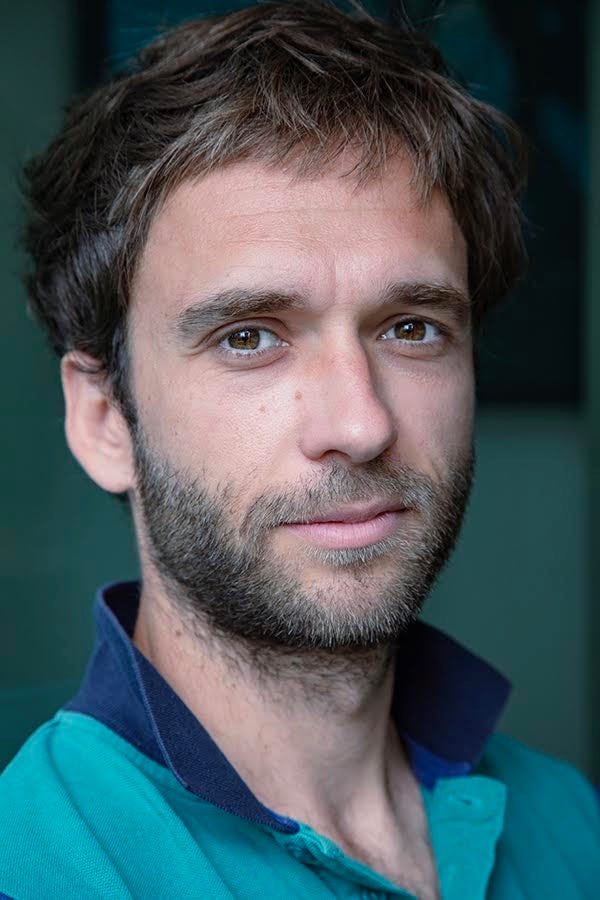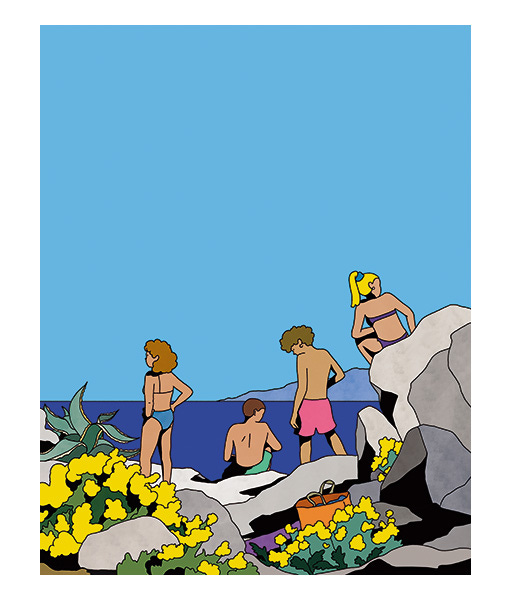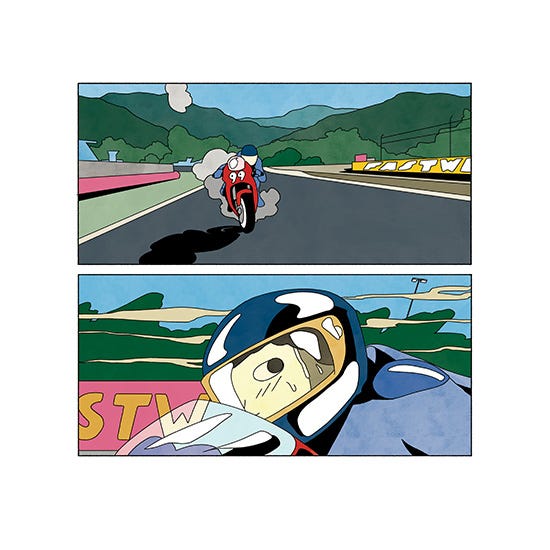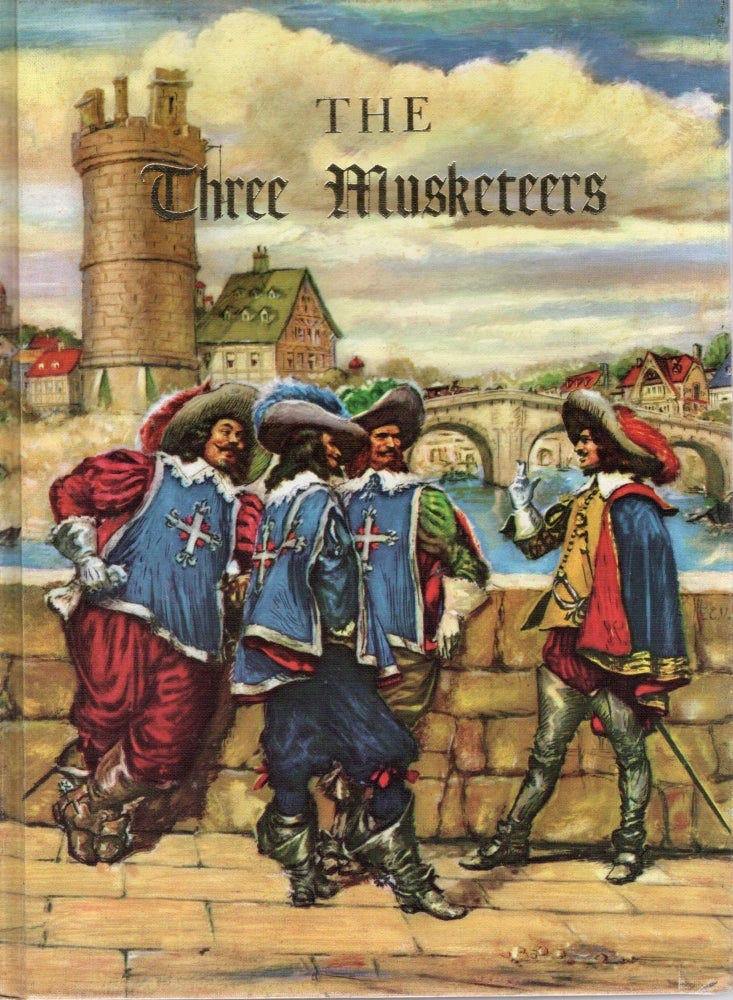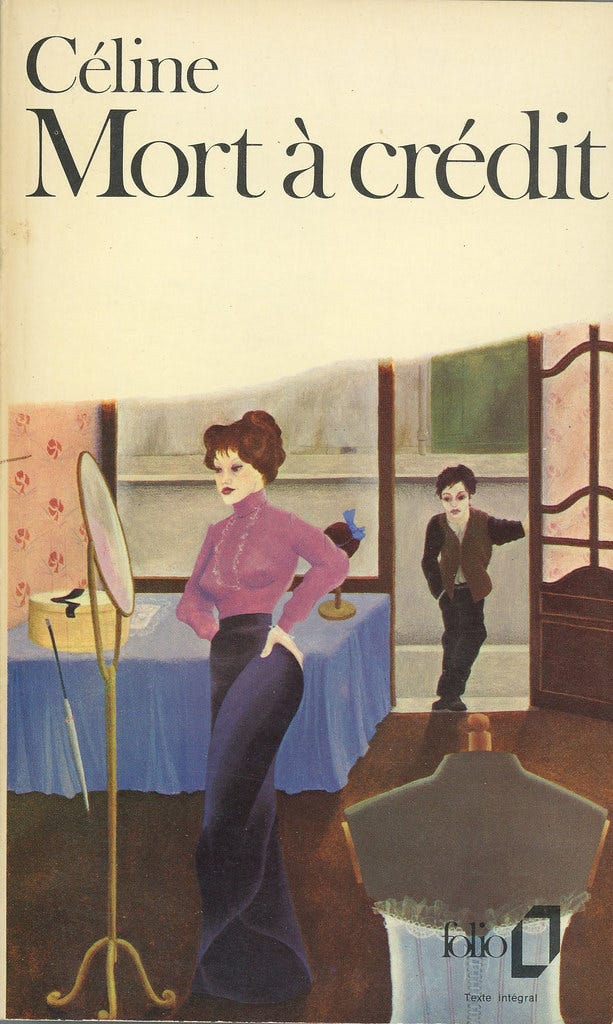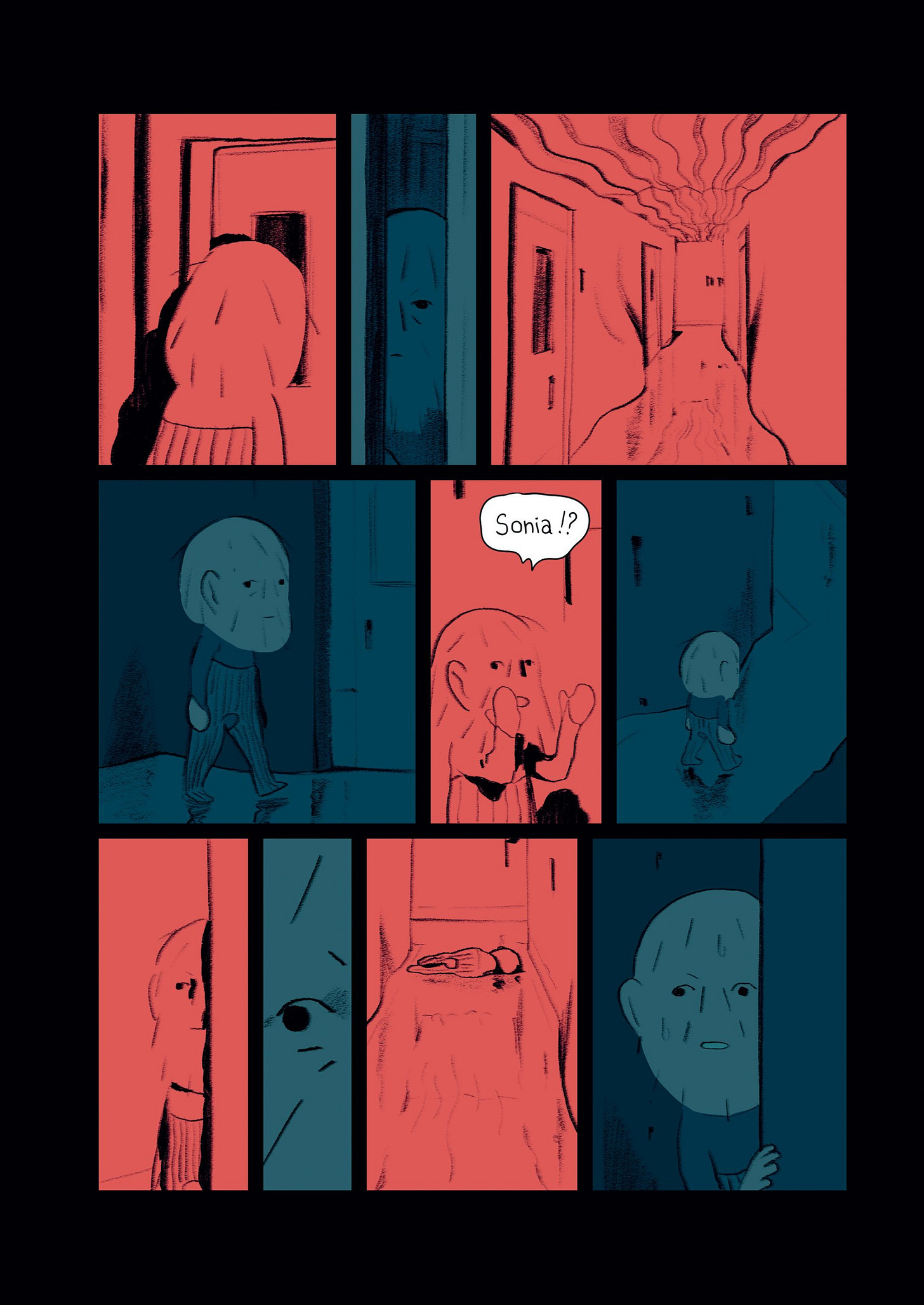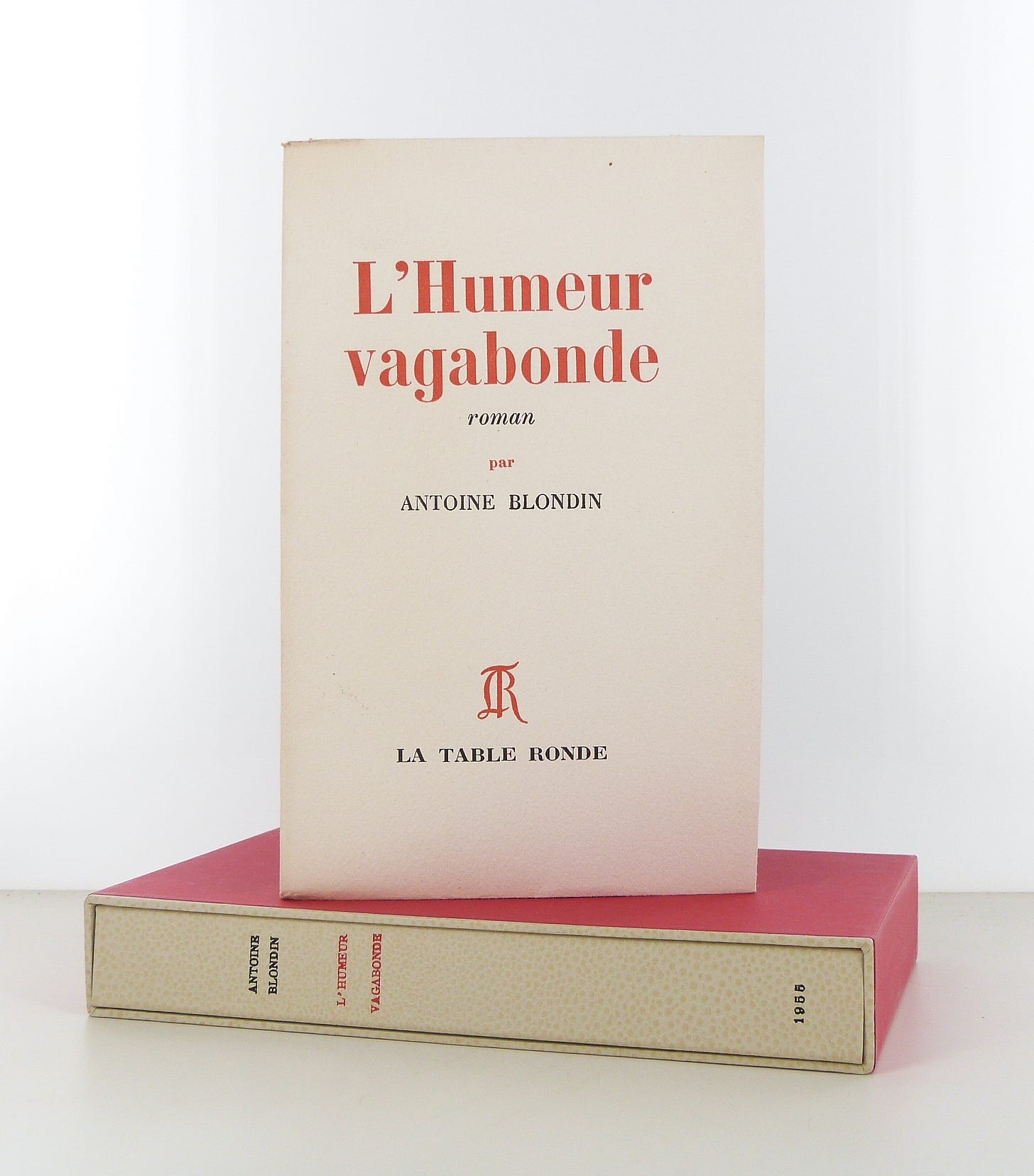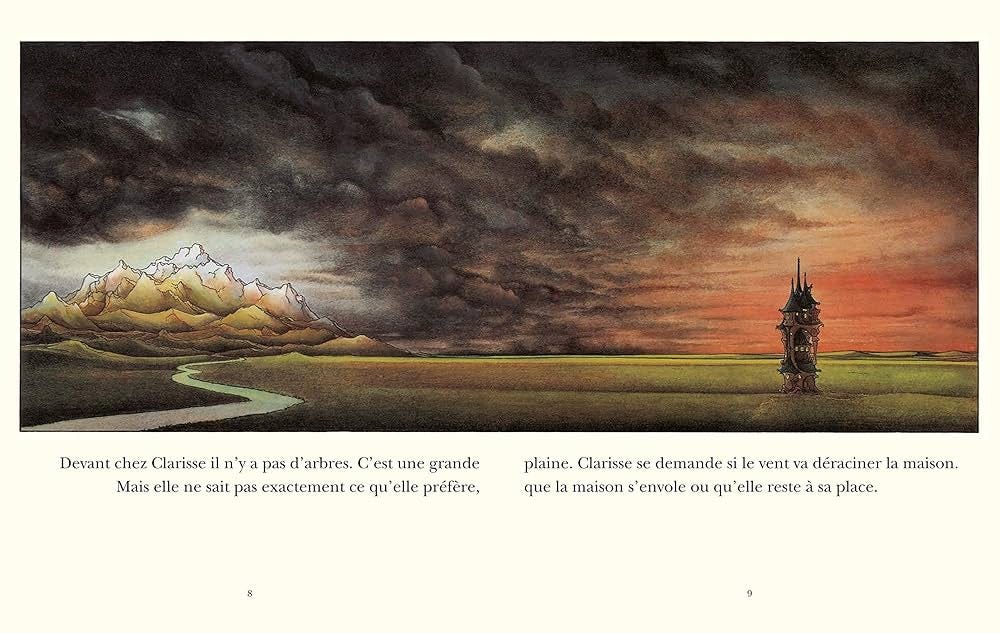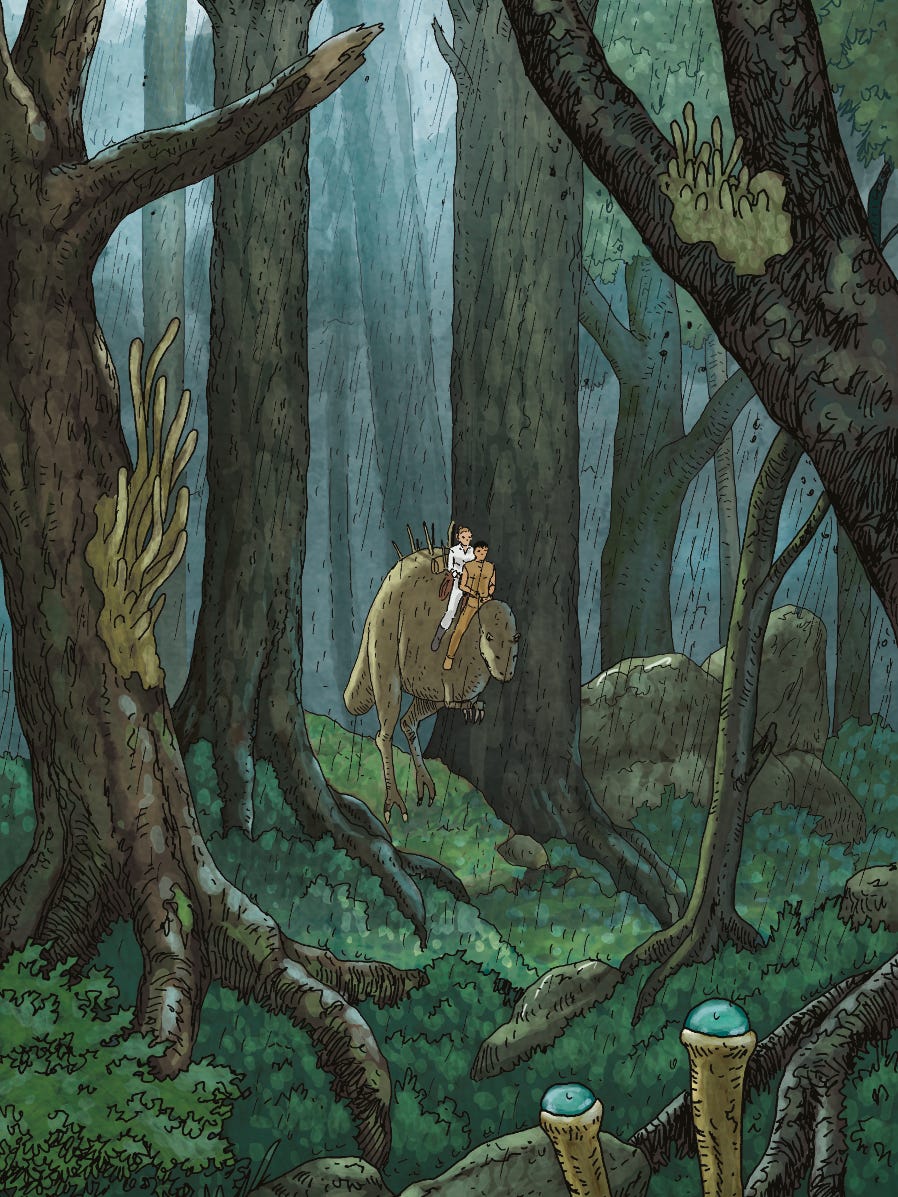I’ve known Jean for over 20 years now. We used to be neighbors, and in the evenings we’d meet up and sit on the Vélib’ stands across from the bakery to smoke cigarettes. Jean has lived several lives, but for as long as I can remember, he has always wanted to make comics and has always shown a rare gift for bringing his readings and stories to life.
A voracious reader, Jean draws inspiration as much from great classic novels as from the silliest comic books. Since 2019, he has been working as an illustrator for various magazines, publishers, and brands. In Marseille, where he lives and works, he mostly uses watercolors, a technique that requires “calm, time, and smoky tea.”
Jean published his first comic book, Motorossa (Dargaud, 2023) —the story of a young woman in mourning who discovers in Sardinia a sudden, all-consuming passion for motorcycles. His graphic style borrows as much from Hergé’s cherished ligne claire as from the dynamism of 1990s TV manga, blurring boundaries to build a universe made of sun, Mediterranean sea, speed, but also slowness. Jean is a cosmopolitan, Platonic author, moving between eras and drawing nourishment from illusion, heroism, and romanticism.
Although he is currently working on his next comic book, he took the time to answer ten questions for the How to read France series, sketching out his own personal map of reading.
Which book should you read to begin your journey in France before even setting foot there?
The Three Musketeers. Paris is never the same after reading that novel—you go out to buy bread and suddenly you feel like d’Artagnan. It’s funny, swashbuckling, moving, epic.
…and which one should you read to be disgusted in advance, and decide you’d rather just stay home?
Serotonin by Michel Houellebecq. There are better postcards… That said, I should add I really do enjoy Michel Houellebecq’s books.
A classic you absolutely must read before you die?
Céline’s Death on Credit. I’ll admit I had to push through the first 30 pages, but then I couldn’t put it down. Beyond the incredible style (you could copy every single sentence into a notebook), it’s also a precious testimony of working-class family life in the heart of Paris at the beginning of the 20th century.
A book from today to discover the contemporary scene?
Uh… I’m not really qualified to answer that, I don’t read much contemporary French fiction. My Life as a Russian Novel by Emmanuel Carrère might be the recent book that struck me the most.
Otherwise, in graphic novels, I really liked La Voix de Zazar by Geoffroy Monde, recently published by Atrabile.
The prize for the most beautiful title?
L’humeur vagabonde by Antoine Blondin, which is also a brilliant novel. I reread it recently and was struck again by Blondin’s lightness of style. In fact, the whole book carries the same disenchanted elegance as its title.
A poem to learn by heart to impress people?
If you want to avoid looking like a jerk, never recite poetry out loud.
If you really have no choice, better go with something a little risqué—for example, the lyrics to Mickey Maousse by Serge Gainsbourg.
A place tied to an author or a work you’d recommend visiting as a pilgrimage?
Hauteville House, Victor Hugo’s home in Guernsey, is the first thing that comes to mind. Though technically that means going to England (well, it’s only two hours from Saint-Malo).
Otherwise, if you’re along the Loire, stop by Saint-Florent-le-Vieil, where Julien Gracq was born.
An essay to better understand the country?
Uh… even less qualified here. Fart.
A book to give to a child learning French?
For little ones: La Tempête by Claude Ponti and Florence Seyvos.
For older kids: the graphic novel Petit Vampire by Joann Sfar, or Tom-Tom and Nana illustrated by Bernadette Després.
For even older ones: the Aldebaran series by Léo.
If France were a literary genre, which one would it be—and why?
Meat in sauce.
Introducing Contributor, Victor Coutard
Immerse yourself in all of Victor’s articles on his Contributor page.


